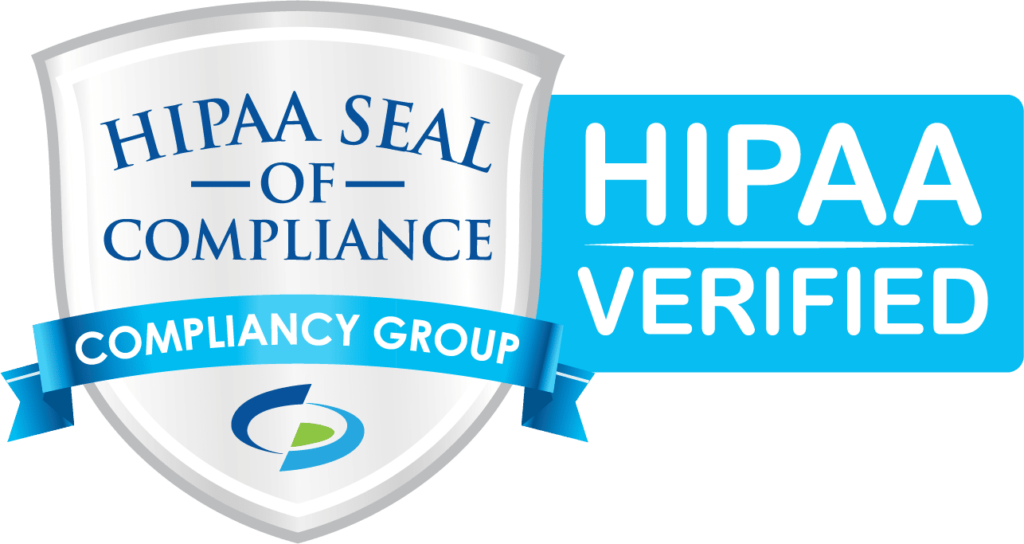Coordinating medical care after an accident can feel overwhelming, but it’s essential for your recovery. You might wonder where to start or how to keep everything organized. From seeking immediate medical attention to managing expenses, each step plays a key role in guaranteeing a smooth recovery process. But how do you make sure nothing slips through the cracks? There are practical strategies that can ease this burden and help you focus on healing. Ready to explore these important tips that could make all the difference in your post-accident journey?
Seek Immediate Medical Attention
In the aftermath of an accident, attending to your health with urgency is paramount. You must seek medical attention immediately, even if you think you’re unscathed. Some serious injuries, like internal bleeding or concussions, can lurk beneath the surface without obvious symptoms.
Professional Medical Care is essential for identifying and addressing these hidden threats before they escalate. If you experience considerable pain, bleeding, loss of consciousness, or visible fractures, these are clear indicators that you need a medical evaluation without delay.
Statistics reveal that delaying treatment often results in prolonged recovery times and less favorable health outcomes. Timely Medical Care not only enhances your prognosis but also aids in effective pain management, reducing the risk of long-term damage.
Early intervention is key to ensuring a smoother recovery process. Accessing care quickly, whether through an emergency room or urgent care facility, greatly impacts your recovery’s effectiveness and overall treatment success.
Document All Symptoms
Keeping a detailed record of your symptoms after an accident is vital for your recovery and any legal proceedings. Documenting every symptom you experience provides a thorough overview of your injury’s progression and helps medical professionals tailor your Medical Treatment.
Start by noting the intensity, frequency, and nature of any pain or discomfort. This detailed symptom diary is invaluable for accurate diagnoses and effective treatment plans.
Record symptoms immediately following the accident and continue throughout your recovery. This ongoing documentation creates a timeline that can be essential for legal claims and insurance purposes. If you’re working with a personal injury attorney, this timeline serves as significant evidence of how the accident has affected your daily life and overall well-being.
Be attentive to any changes in your symptoms. For example, if you notice worsening pain or new issues like headaches or dizziness, document these carefully. Such changes can alert medical professionals to potential complications needing immediate attention.
Choose the Right Facility
Steering through the aftermath of an accident requires careful decision-making, especially when choosing the right medical facility. You need to evaluate the severity of your injuries to decide whether an Urgent Care center or an emergency room is the appropriate healthcare facility.
Urgent Care is ideal for non-life-threatening issues like sprains or minor cuts. They offer shorter wait times and are generally more cost-effective, which can be beneficial if your injuries are less severe.
However, if you’re facing severe, life-threatening conditions, the emergency room is the place to go. They’re equipped with advanced diagnostic tools and trauma specialists ready to provide immediate medical attention. This choice can greatly impact your treatment timing and recovery outcomes.
Before an accident happens, familiarize yourself with local medical facilities. Knowing where to go guarantees quick access to the right care, preventing complications and promoting a smoother recovery.
Also, understand your insurance coverage in advance. It can affect your choice of facility and out-of-pocket costs, helping you make informed decisions without financial strain.
Choosing the right healthcare facility is vital for your recovery, so weigh your options carefully.
Understand Your Treatment Plan
After selecting the right medical facility, it’s important to focus on understanding your treatment plan. This plan is your roadmap to recovery, often involving medical assessments, imaging tests, and consultations with specialists. These components work together to provide a thorough view of your injuries and guide your path to healing.
Collaborate closely with your healthcare provider to grasp the goals and expected timeline of your treatment plan. Clear communication guarantees you’re well-informed, helping you commit to the necessary steps for a successful recovery.
Diligence in following your treatment plan is vital. Attend all scheduled assessments and adhere to prescribed therapies. This dedication not only speeds up your recovery but also prevents complications.
Should you experience any concerns or side effects, promptly discuss them with your healthcare team. They can adjust your treatment plan to better suit your needs, ensuring ideal results.
Keep detailed documentation of your treatment plan, including prescribed medications and therapies. This record is essential for maintaining continuity of care and is invaluable for any future insurance claims related to your injuries.
Staying organized and proactive in understanding your treatment plan empowers you on your recovery journey.
Schedule Follow-Up Appointments
Scheduling follow-up appointments is a fundamental step in ensuring a smooth recovery from your injuries. After an accident, it’s essential that you seek medical attention regularly to monitor your healing progress. Follow-up visits allow your healthcare providers to adjust your treatment plan based on how your symptoms are resolving. This proactive approach can prevent complications and address any new issues before they escalate.
You should schedule follow-up appointments as your medical team advises, typically within a few days to weeks after your initial treatment. The timing depends on the severity of your injuries, so it’s imperative to adhere to their recommendations.
Documenting each visit is essential—not just for your health, but also if you’re dealing with insurance claims or engaging a personal injury lawyer. Maintaining detailed records of your follow-up appointments and treatments can greatly support your legal case, should it be necessary.
Additionally, if your follow-up care includes physical therapy, actively participating can enhance your recovery and help restore functionality. By committing to these steps, you’re taking charge of your health and laying the groundwork for a full recovery.
Communicate With Healthcare Providers
Effective communication with your healthcare providers is essential for a successful recovery after an accident. Start by clearly conveying all symptoms and concerns during your initial medical assessments. This detailed communication can greatly impact your diagnosis and treatment planning.
Make sure you provide a thorough list of all medications, allergies, and prior medical conditions. This information helps your healthcare providers make informed decisions about your care.
Document each medical visit and the treatment plans discussed. These records are important for follow-up appointments and might be needed for insurance claims.
Don’t hesitate to ask questions about your diagnosis, treatment options, and expected recovery timelines. Understanding your care plan thoroughly is critical to knowing what to expect and how to manage your recovery effectively.
Establish a direct line of communication with your healthcare team. This can facilitate smoother coordination of care, especially if referrals to specialists or follow-up appointments are required.
By maintaining open and effective communication, you help guarantee that everyone involved in your medical care is aligned and informed, ultimately supporting a more efficient and extensive recovery process.
Your proactive approach to communication is key to steering post-accident medical care successfully.
Organize Medical Records
Once you’ve established effective communication with your healthcare providers, it’s important to organize your medical records meticulously. If you’ve been injured in an accident, particularly a car accident, keeping a detailed and systematic record of all your medical activities is vital.
Start by documenting each medical visit, including the date, healthcare provider’s name, diagnosis, treatment plan, and any medications prescribed. This helps not only with insurance claims but also guarantees continuity of care.
Chronologically arranging these records will allow you to track your recovery progress more effectively. It’s important to maintain copies of imaging tests, lab results, and referral letters. These documents can greatly enhance communication with specialists and guarantee that all healthcare providers involved are on the same page regarding your treatment.
Consider using a dedicated folder or a digital system to store all these medical documents. This organization will streamline the process when you need to share information with legal representatives or insurance companies.
File Insurance Claims Promptly
Filing your insurance claims promptly is a critical step in managing post-accident recovery, and it can’t be overstated how timing impacts your compensation eligibility. After an accident, most insurance companies require you to file your claim within a specific timeframe, typically ranging from 30 to 90 days. Delays can complicate the process and might jeopardize your chance of receiving the compensation you deserve.
To guarantee a smooth claims process, gather and submit all necessary documentation, such as medical records and receipts. This not only supports your claim but also helps expedite approval. Reporting the accident to your insurance provider as soon as possible guarantees you receive timely updates and guidance.
Keeping detailed records of all communications with your insurance company will aid in tracking your claim’s progress and addressing any disputes that might arise.
If you’re feeling overwhelmed, remember a lawyer can help. They can guide you through the complexities of filing insurance claims promptly, ensuring all documentation is in order and deadlines are met. This proactive approach can make a significant difference in your post-accident recovery journey, providing peace of mind and financial security.
Manage Medical Expenses
After promptly filing your insurance claims, the next key step in your post-accident recovery involves managing medical expenses effectively.
Start by keeping detailed records of all medical expenses, including receipts, invoices, and any related costs. This documentation is essential for your insurance claims and potential legal actions. Understanding your insurance policy coverage is important, as many plans provide provisions for accident-related medical expenses, greatly reducing your out-of-pocket costs. Make certain you know exactly what your policy covers and utilize those benefits.
Consider using urgent care facilities for non-life-threatening injuries, as they usually charge lower fees than emergency rooms, helping you to minimize overall medical expenses.
Explore payment plans or financial assistance programs offered by medical facilities. These options can help you manage high medical bills and allow for more manageable repayments. Don’t hesitate to ask for these options, as they can ease your financial burden.
Lastly, be proactive in following up with your insurance company regarding claims for medical expenses. Timely communication can prevent delays in reimbursement and help you manage financial strain.
Stay Informed on Recovery Progress
A significant part of your post-accident journey is staying informed on your recovery progress. Regular follow-up appointments with your healthcare providers are fundamental. These visits help monitor how well you’re healing and allow for necessary adjustments to your treatment plan.
By keeping a detailed record of your symptoms and any changes you experience, you provide valuable information that aids your doctors in evaluating the effectiveness of your prescribed treatments and therapies.
Engaging in prescribed physical therapy is essential. Not only does it facilitate your rehabilitation, but it also offers an opportunity for ongoing evaluation of your recovery progress. Your therapist can adjust exercises and techniques as needed, making certain you’re on the right track.
Don’t hesitate to communicate openly with your medical professionals about any new symptoms or concerns. Such discussions can lead to timely interventions, potentially preventing complications.
Utilizing patient portals or health apps can be immensely beneficial. They help you track recovery milestones, manage medication schedules, and keep up with appointments, making it easier to stay informed about your health status.
Conclusion
You’ve taken essential steps to guarantee a smooth recovery journey. By seeking immediate medical attention, documenting symptoms, and picking the right facility, you’re setting yourself up for success. Understanding your treatment plan and keeping up with follow-up appointments helps you stay on track. Don’t forget to organize your medical records and file insurance claims quickly. Managing expenses wisely will reduce stress, allowing you to focus on healing. Stay informed and proactive to navigate your recovery with confidence and care.



